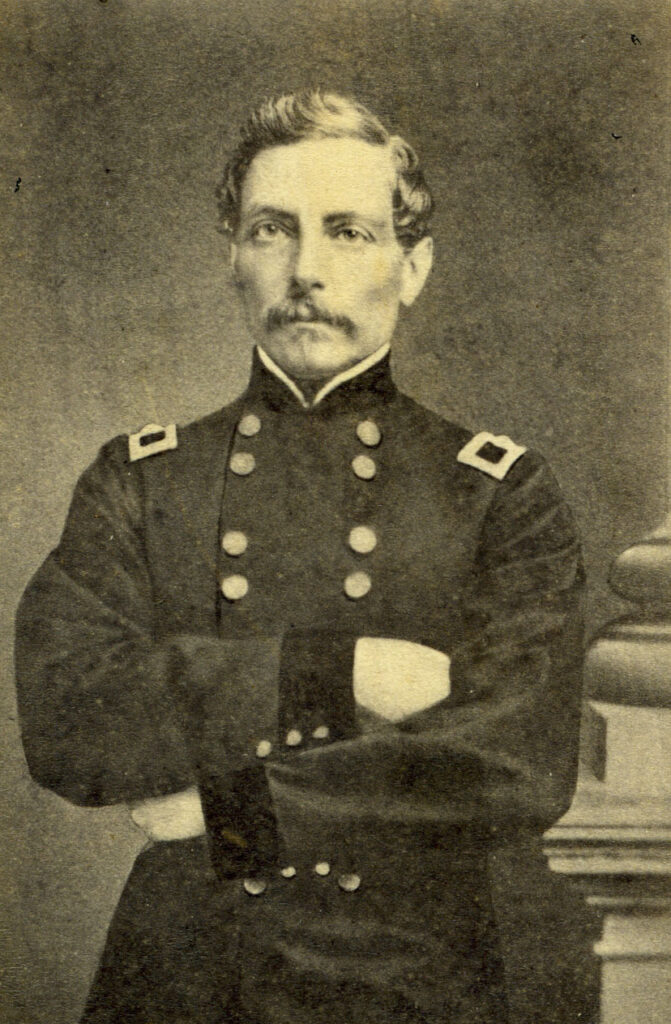Section #22 - The Southern States secede and the attack on Ft. Sumter signals the start of the Civil War
Chapter 287: Lincoln Sends Messengers To Charleston While Monitoring The Virginia Convention
April 2, 1861
The South Puts The Squeeze On The Ft. Sumter Garrison

(1818-1893)
The sideways drift in negotiations over Ft. Sumter causes War Secretary Leroy Walker to increase the pressure on Major Anderson.
The form comes by way of rations.
Anderson already writes a note to Washington on April 1 saying that his food is running out and estimating that, at best, he could hold on for ten days or so.
Walker ups the ante on April 2, ordering that no more provisions be allowed into the fort.
The order goes to forty-two year old Pierre Gustave Toutant Beauregard.
Beauregard is born on a sugar plantation outside New Orleans to French Creole parents. He graduates from West Point as an engineer and is twice wounded en route to capturing Mexico City with General Scott.
After touting Jefferson Davis to head the Confederacy, he is rewarded by being named the first Brigadier General in the Confederate Army.
His supreme self-confidence and flamboyant personality make General Beauregard eager to lead an assault on Ft. Sumter.
April 4, 1861
Lincoln Keeps His Eye On The Virginia Convention
Within Lincoln’s cabinet there is agreement that if Virginia stays in the Union, it might swing the entire Upper South and the Border states to follow suit, and perhaps even cause a return by the seven early seceders. This will prove to be more wishful thinking, but on April 4 the President wants to hear the latest news from the Virginia convention, already under way for two months.
To do so, he invites John Baldwin, a pro-Union delegate, to the White House for an update.
Seward still hopes that Lincoln will use the time to tell Baldwin that he will evacuate Sumter if Virginia ends its session without seceding.
But the President simply probes his guest as to why the convention hasn’t ended already, to demonstrate the state’s loyalty to the Union.
Baldwin levels with Lincoln, saying that the delegates are in a wait and see mode regarding the outcome at Ft. Sumter, and that, if shots are fired by either side, secession will follow. When Lincoln pushes back on that assessment, Baldwin responds:
Mr. President, I did not come here to argue with you. I am here as a witness. I know the sentiments of the people of Virginia and you do not.
April 4, 1861
Two Messengers Are Dispatched To Charleston
After Baldwin leaves, Lincoln decides it is time to communicate directly with Governor Pickens in Charleston, and, if possible, visit Ft. Sumter and Major Anderson.
He enlists a State Department clerk, Robert Chew, to hand Pickens a message, while denying him the authority any on-the-spot reply. The message reads:
I am directed by the President of the United States to notify you to expect an attempt… to supply Ft. Sumter with provisions only; and that, if such an attempt be not resisted, no effort to thrown in men, arms or ammunition, will be made without further notice, or in case of an attack on the fort.
This wording reflects the President’s passive-aggressive approach to dealing with Ft. Sumter.
On one hand he promises not to initiate the use of force – while, on the other, making it clear that he fully intends to keep Sumter in Union hands.
That way, if violence breaks out, it will be the other side that fires the first shot.
In addition to Chew, Lincoln also dispatches Lt. Theodore Talbot to Charleston, on the outside chance that he will be allowed to enter the fort and report on conditions there.